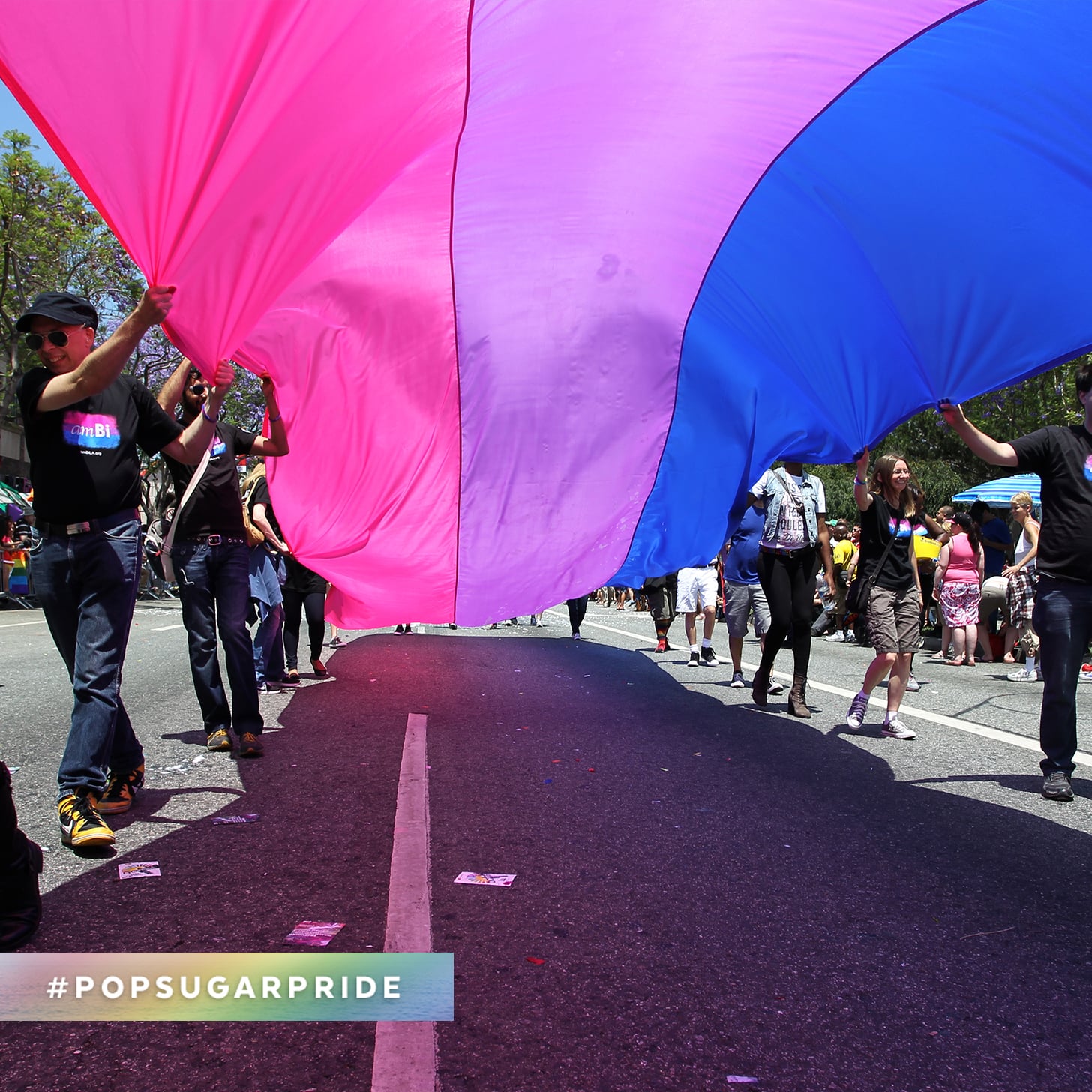
There are quiet declarations of pride: I can wear my bi-pride pin on my everyday bag or paint the bisexual flag on my cheek for LGBTQ Pride Night [1] at a Giants game. While I'm usually more likely to plant my hands on my hips and tell someone to f*ck off than I am to wilt or slink away, I know that's a privilege many don't have. More than anything, it's my voice that matters — it's my voice that really shows that I'm not ashamed or scared or shy about myself, and I haven't been using it as much as I should. I haven't been doing as much as I should.
I never had so much a "coming to terms" with my sexuality as I did a slow, dawning realization that I wasn't straight. I grew up in a town of 15,000 people in California's Central Valley, in a community surrounded by almond orchards and pastures and churches. I never realized there was anything more than "gay" or "straight" until I was 17, and I spent my teenage years telling myself I had to be straight because I was interested in guys, right?
Ah, youth.
It only took me a year of college to realize I am bisexual and start identifying as such to others. "Hey, I think I might be bi," I told a co-worker faux-casually at 19. "Hey, I'm definitely bi," I told that same co-worker a few months later, grinning and giddy. While bisexual as most define it isn't strictly correct, it was the first word I found that (mostly) conveyed what I wanted it to; it was a sense of comfort to find it after spending my teenage years assuming that I had to belong to the binary system and that was all I got. Even now, I'm still growing in my understanding of myself and my sexuality, and having friends and resources [2] to turn to is so helpful for that.
I look straight — whatever that means — and definitely pass as straight. When it comes to my sexuality, I've never faced much in the way of outright bigotry [3] (or worse [4]) beyond a few glares and insults here and there and some discomfort from my first boyfriend (boy, bye). I'm a lot more privileged than many people in the queer community as a white cisgender woman working a job I love, living in a city I love, with friends I love. It's allowed me to stand up and shut people down when they start sh*t, to be a buffer for those who need it. I've never been scared for my life or threatened because of my sexuality or (lack of) religion or the color of my skin. And yet, despite my far more privileged experiences, what have I actually done? What have I actually contributed to the members of my community who have faced violence and discrimination simply for being who they are?
They say coming out is a constant thing, that it's never over. People spend all their lives coming out again and again and again in small and big ways. You come out to your friends, your siblings, your co-workers, your parents. . . . There's so much focus on the big moment of "coming out" now, the dreaded "Mom, Dad, I'm gay," but that's only a sliver of the reality. Each time it's a little thrill of fear in the back of your throat, even in my case. After telling my brother, my friends, my co-workers, strangers in bars and at parties, a cousin or two, even the internet, somehow I've still yet to tell my parents that I'm queer.
So it's time to tell my parents, to start with. It's time I start using my voice in more than just quiet everyday moments with friends. In the wake of such events as the Pulse massacre [5] last year and gay-conversion supporter Mike Pence [6] being elected vice president, it's time to straighten my spine and start doing more than just wearing pins and bi-pride Captain America t-shirts. More than ever, it's time for me to be aggressive in asserting not just who I am, but who we are, together, as an LGBTQ community [7] — and it's time to be unafraid of declaring it. It's time to get involved in my community — I started by signing up to volunteer with the San Francisco LGBT Center [8]. It's time for me to stop being afraid and to start using my voice not just to broadcast my pride in myself, but to speak up for those who can't so easily.